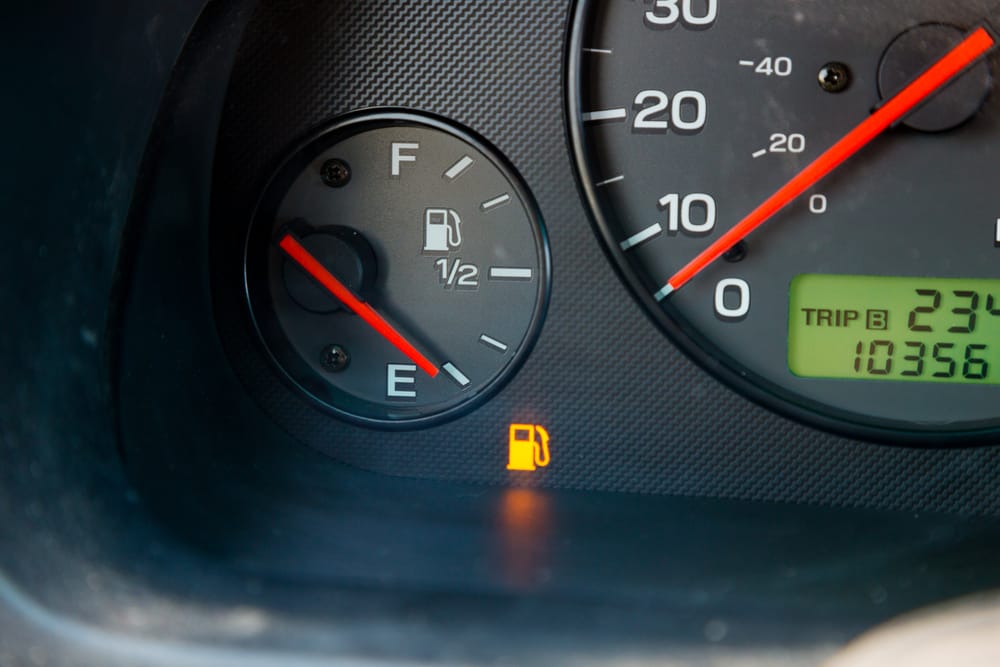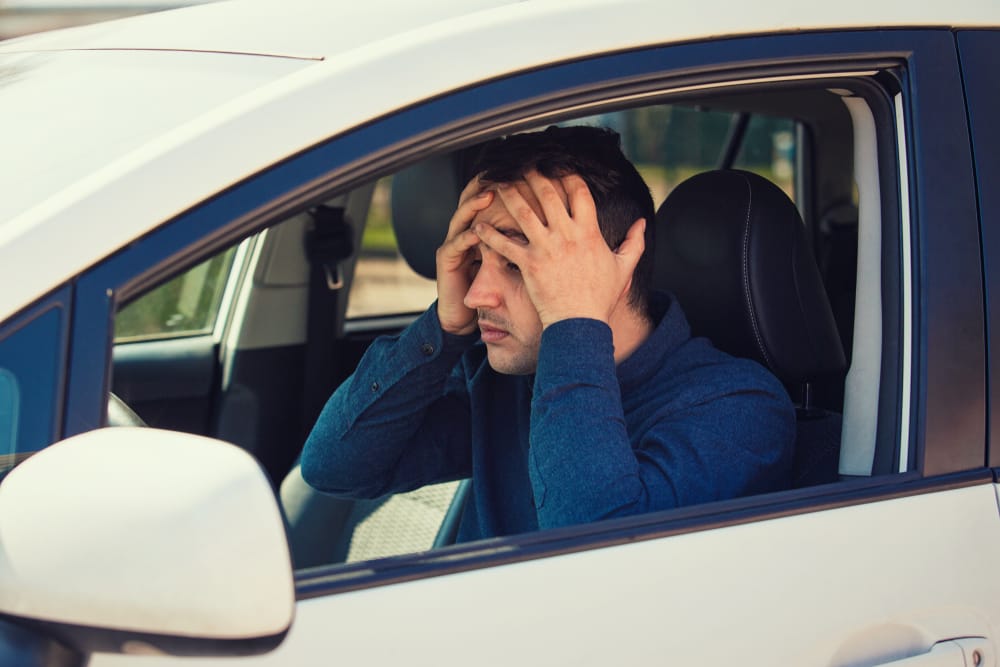A car with a conventional internal engine needs gas to power it. When a car
runs out of gas, the engine stops working. But will a car start without
gas?
A car will not start without gas. Many cars don't even start when the
gas level in the fuel tank is very low. This is because the engine
needs a fair bit of gasoline to reach the fuel pump. Without enough
fuel, the fuel pump will run dry, and the car won't start.
Here is everything you need to know about driving a car with low or no
fuel.
 A gas gauge showing empty.
A gas gauge showing empty.
Will A Car Not Start If It Has No Gas?
No, a car will not start if it has no gas.
A car needs fuel, oxygen, and an ignition spark to start. If any of these
are missing, your car will not start.
What Happens When Fuel Tank Is Empty?
When the fuel tank is empty, your car's fuel filter may clog, the fuel
pump might overheat, and you may encounter engine misfires.
Driving the car when the fuel tank is empty is more damaging. Here is what
can happen:
-
Clogged Fuel Filter: over time, dirt, sediment, and debris settle at
the gas tank's bottom. When empty, these contaminants might dry, get
sucked in, and clog your fuel filter, restricting gasoline flow to the
engine.
-
Fuel Pump Damage: The fuel pump inside your car relies on the gasoline
inside the tank to lubricate and keep itself cool. When the fuel tank
is empty, the fuel pump can overheat and become damaged.
-
Engine Misfires: Running a car when the fuel tank is empty can make the
fuel pump take in air. When the engine doesn't have a consistent fuel
supply, it misfires before completely stopping.
 Running out of gas while driving.
Running out of gas while driving.
How Long Can My Car Run On No Gas?
Most cars can run between 30 and 50 miles when your fuel gauge shows
"Empty." How long your car can run dramatically depends upon its make
and model and fuel efficiency.
Every car has a fuel gauge showing the gas level in its fuel tank. As the
fuel level drops, the needle in the gauge gradually moves towards "Empty."
Once it reaches there, your car can only run for 30 to 50 miles before
stopping.
How Do You Start Car After It Runs Out Of Gas?
You start a car after it runs out of gas by refilling the fuel tank,
priming the fuel pump, and cranking the engine.
This is how you start a car after it runs out of gas.
-
Refill the tank: Open the fuel tank cap and fill it with fresh gas.
-
Prime the fuel pump: Put the key in the ignition and turn it into the
accessory position. Then turn it back off. Do this a couple of times to
prime the fuel pump.
-
Crank the engine: Start the car after sufficiently priming the fuel
pump.
 Running out of gas while driving.
Running out of gas while driving.
Is My Car Out Of Gas Or Dead Battery?
If the engine is cranking, but the car does not start, it might be a
dead battery. But if the engine fails to crank, your car might be out
of gas.
An empty fuel tank and a dead battery prevent your car from starting.
However, their symptoms are somewhat different.
Signs Of A Weak Or Dead Battery
The signs of a dead battery include:
-
When your car stops and refuses to start again, it is a clear sign of a
weak or dead battery.
-
You are frequently jumpstarting your vehicle.
-
The electrical components shut off intermittently.
-
Your car's headlights are not shining as brightly as they used to.
Signs Of Empty Fuel Tank
When your car is running out of gas, it will display the following signs:
-
You experience a significant drop in power.
-
Your fuel gauge is on the E mark.
-
The car is sputtering and stalling.
-
It has come to a complete stop, and the engine is not cranking.
Conclusion
A car will not start without gas. It needs an adequate amount of fuel to
start and to keep running.
If the fuel gauge on your car has reached "Empty," you are using the
reserve fuel, which may enable you to drive a bit farther. Refill your fuel
tank soon because you won't make it very far.
When your fuel tank is empty, your car starts sputtering and stalling
before stopping.